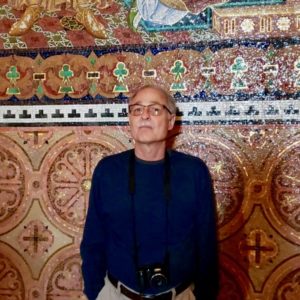Reformation Tour: Music & Luther
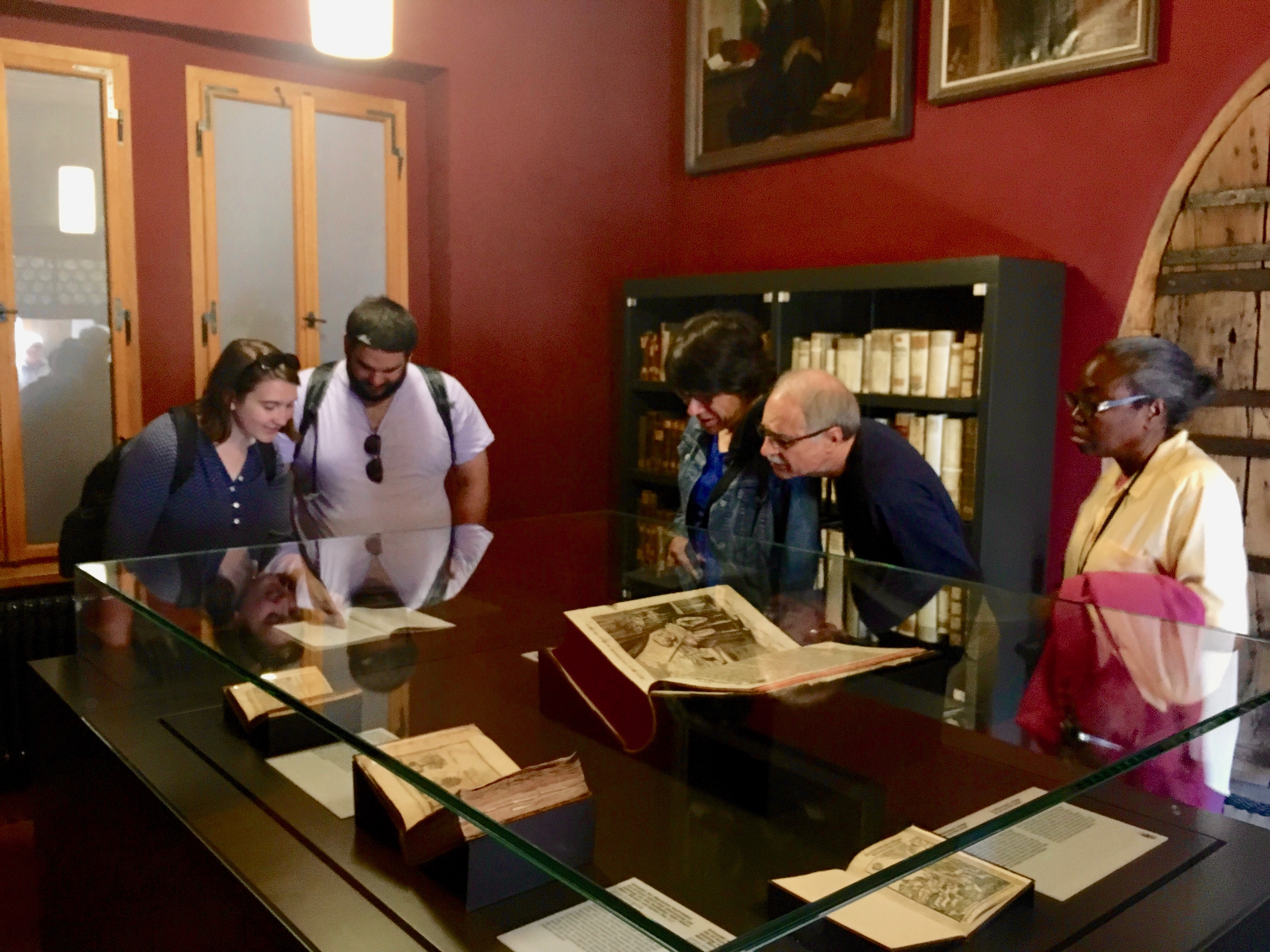
BY DAVID BOELZNER
This day combined music and Luther. From the charming city of Erfurt, we bused west to Eisenach, the birthplace of Johann Sebastian Bach and location of Wartburg, the impressive fortress where the Elector Frederick the Wise protected Luther after having him “kidnapped.” Having been excommunicated and declared an outlaw, Luther was highly vulnerable, and Frederick sheltered him for ten months in this ancient (begun 1067) but seldom used castle.
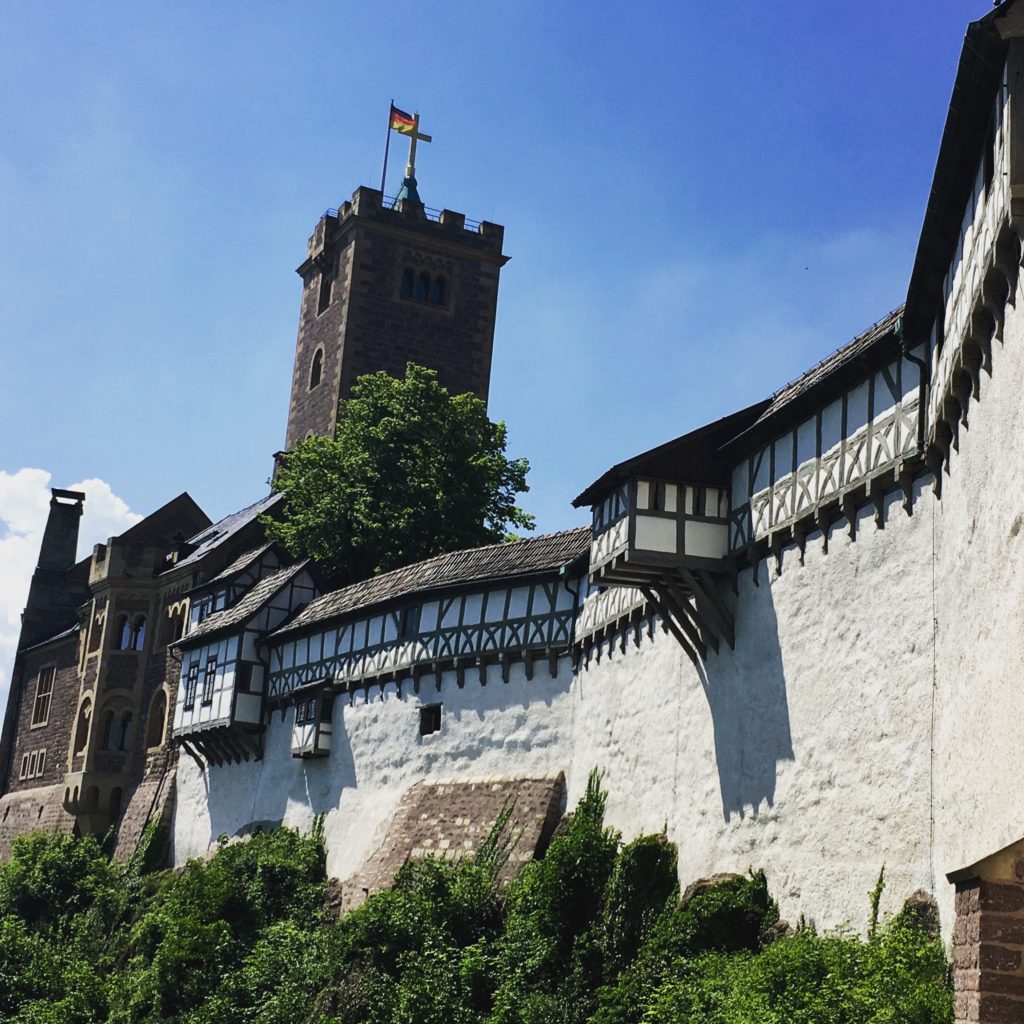
Wartburg castle (Tricia Veseley)
We saw the room where Luther worked productively, translating the New Testament from the original Greek source (incredibly in 10 weeks). This not only opened the Bible to all people who could read, but, we learned from our excellent guide, it also helped to standardize from various dialects the language that became High German.
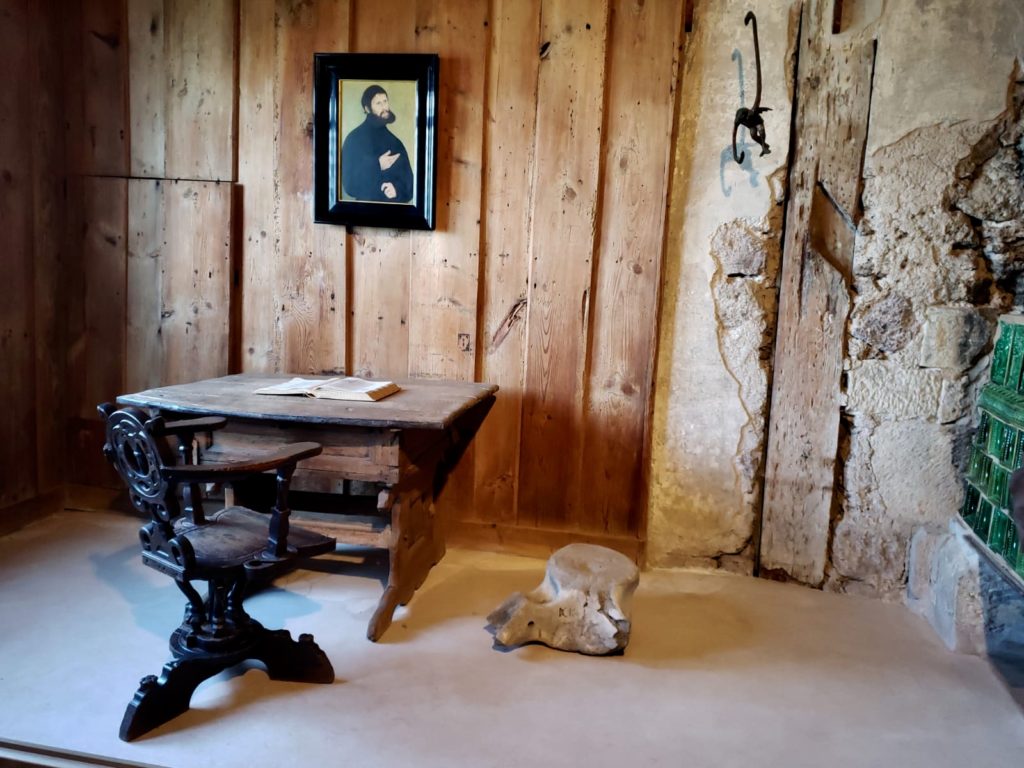
Where Luther translated the Bible from Greek and Hebrew (Ann Boelzner).
Luther resided under an alias in modest quarters, but the castle also contains a magnificent great hall which reportedly hosted the 13th century Minnesinger contest featured in Richard Wagner’s opera Tannhauser, and which in the 19th century was remodeled and decorated in a grand style, including a trapezoidal ceiling conducive to music recommended by Franz Lizst.
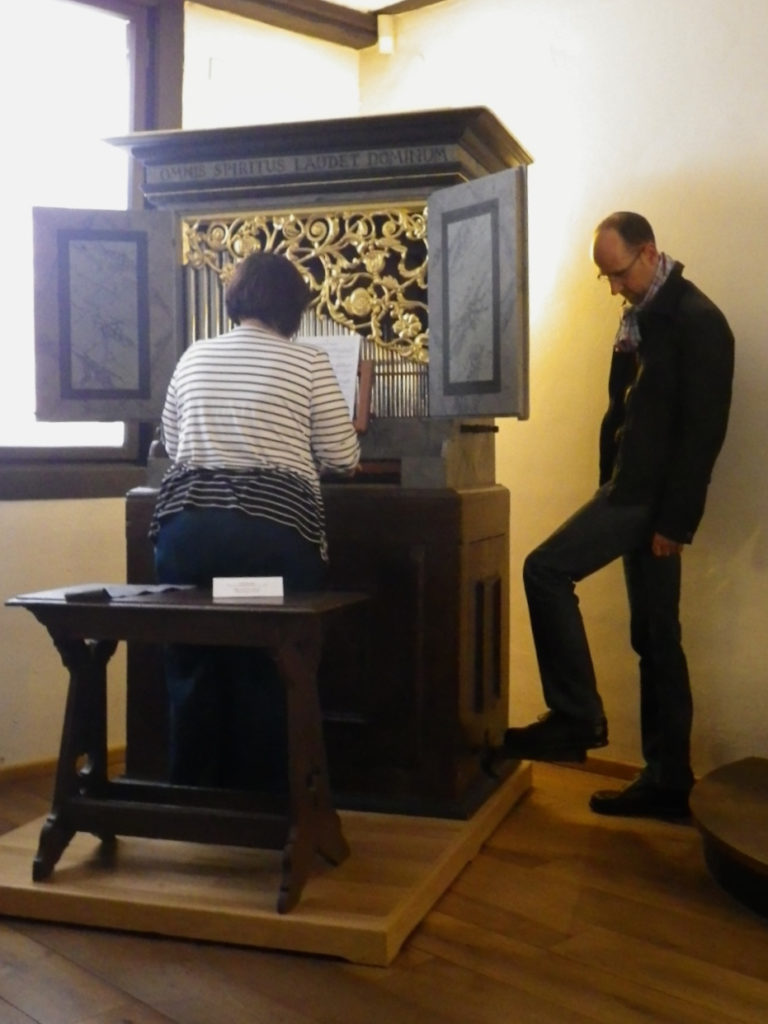
Bachhaus organ
From the mountain fortress, we descended into the ancient town of Eisenach, where Luther had lived as a student. The town was also home to a branch of the musical Bach family, and its most famous member, J.S. Bach. The Bach house and museum were a treat for the several musicians in the group. The tour included a brief recital on several period instruments, including a 300-year-old organ that Bach probably played himself. The demonstration was done with our own Ann Boelzner pumping the pedal bellows to supply the air to the instrument.
The day ended with a three-hour bus ride to Koblenz, at the confluence of the Mosel and Rhein (Rhine) rivers.
David Boelzner is a law professor at William and Mary, choir member at Good Shepherd Episcopal Church, and composer.
